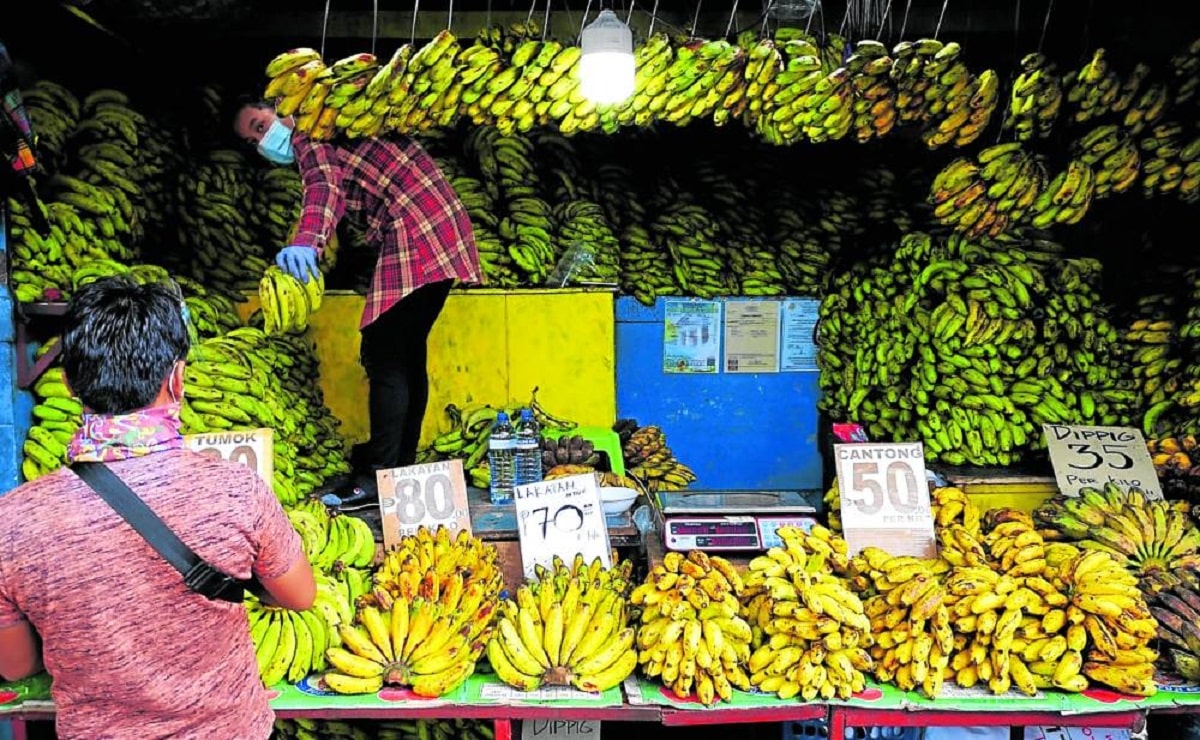
LIFEBLOOD FOR SMALL TRADERS The century-old Baguio City Public Market, its fruit section shown in this 2020 photo, has been providing livelihood for generations of small traders and local businessmen. The market, a tourist destination in one of the city’s prime spots, is up for redevelopment. —EV ESPIRITU
BAGUIO CITY—Small traders and businessmen at the century-old Baguio City Public Market are trying to raise P4 billion to wrestle it back from a mall developer who has offered to build a P4.6 billion retail building for the summer capital.
Zosimo Abratique, former Baguio chapter president of the Philippine Chamber of Commerce and Industry, said he asked the estimated 4,000 market vendors to start raising P1 million each, “to be underwritten by local banks,” so they could win back the market modernization project once an unsolicited offer by SM Prime Holdings is put to a Swiss Challenge, possibly by the end of the year or in 2025.
He took part in a public consultation on the city’s 3.9-hectare property, on which the public market operates.
Abratique had pitched a vendor-led market redevelopment proposal in 2020 as head of the Baguio Market Vendors Association (Bamarva) after retail giants SM Prime and Robinsons Retail Holdings made separate unsolicited offers to replace Baguio’s historic but worn-down market.
SM was eventually granted original proponent status by the Baguio government and was about to conclude negotiations over the proposed terms of reference for a 50-year lease agreement at the start of 2024. But a new public-private partnership law (Republic Act No. 11966) that took effect in January requires the Baguio government to follow new procedures for unsolicited project proposals. Last week’s public consultation, the seventh to be organized by the city government since 2019, was one such requirement.
Timeline
Should SM Prime win the contract, the shopping mall giant intends to build a P4.6-billion multilevel retail structure in four-and-a-half years, according to Egbert Lim, SM Prime’s senior assistant vice president for operations.
Part of the structure is a temporary market building at the city’s slaughterhouse compound, several blocks away, where vendors can continue selling their wares while the main building is under construction.“We cannot ignore the cultural significance [of the Baguio City Public Market] because we all have memories growing up of buying ‘pasalubong’ (gifts) at the market whenever we visited Baguio,” Lim said at the consultation.
He said the modern Baguio market facility, parts of which may rise as high as eight stories, would “retain the culture, color and flavor” of the original market where Ibaloys traded goods during the early years of the American colonial government in the 1900s.
Baguio was designed and built from the ground up by the colonial power, which opened the chartered city in 1909 and was settled by wealthy Americans and Filipinos.
The first unsolicited offers by SM and Robinsons drew skepticism and even anger from vendors and Baguio residents, who expected the city government to spend on the market’s modernization.
Mayor Benjamin Magalong, when he assumed office in 2019, had terminated a previous market modernization contract won in 1996 by Uniwide Sales and Realty Development Corp. Uniwide was dissolved by the courts in 2016 due to bankruptcy.
Magalong said the court-appointed liquidator of Uniwide’s assets accepted Baguio’s decision to rescind the contract, which had not been enforced for almost 26 years because of lawsuits filed by Bamarva and other vendor groups over the deal’s legality.
Fueled by public distrust in big corporations, Bamarva tried to raise P2.6 billion for the vendors’ proposed market plan, which Abratique commissioned in 2020. But Bamarva was unable to complete all the documentation required by the city government.
Original plan
Abratique said Bamarva was originally part of a technical working group formed by Magalong that studied and drew up a modern market development plan that would have been financed by the city. But it was set aside when the city’s finance team concluded that Baguio could not afford it
Lim said the SM Prime offer would improve the city’s economy, generate 3,000 jobs, and widen parking for a tourist destination that is beset by daily gridlocks.
READ: Baguio still Cordillera tourism anchor
But it would need to pass the scrutiny of the City Development Council and the city council before it is subjected to a Swiss Challenge, said City Administrator Bonifacio dela Peña.
This is a mechanism that allows the government to relay details of the proposal to the public so other companies and interest groups may try to match or outperform the investment offered by SM Prime. Unlike other unsolicited offers, SM Prime agreed to allocate 70 percent of the retail building to market occupants under the city’s exclusive control, and would retain only 30 percent for SM’s retail operations, said Magalong at the forum.

